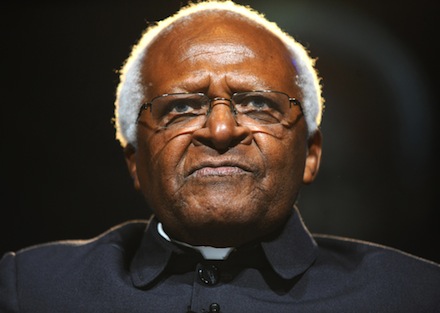- Get link
- Other Apps

Archbishop Desmond Tutu is the latest high-profile figure to come out in favour of changing the law (PA)
We’re running out of cash to care for a rising number of elderly people. That is why we are talking about ‘assisted dying’
By FR ALEXANDER LUCIE-SMITH 14 July 2014
Now that Lord Carey has changed his mind on so-called “assisted dying” we can expect a great deal of discussion on the matter, and an emerging consensus that Lord Falconer’s Bill is a good thing. It is almost certain to pass in some form or another. The United Kingdom will soon be a place where those who wish to end their lives will have the right to do so, and those who help them (if help is the word) will not face prosecution. This is a deeply depressing prospect.
Lord Carey mentions several hard cases that he says have helped him change his mind, but hard cases make bad law. The hard case is often invoked to bring about a change in the law, and that change opens up the prospect of other less hard cases making use of the same law, until eventually we end up like Belgium, which has recently legalised child euthanasia, that is, euthanasia for those who cannot make an informed decision.
This argument is often dismissed as a thin end of the wedge argument, but has there ever been a country where a restrictive law on a matter of human life has not eventually become a permissive law? “Safe, legal and rare”? How hollow those words seem now.
It needs to be grasped in this debate that the debate is not really about what it claims to be about. It is not really anything to do with compassion; if it were, someone like Dr Jack Kervorkian would have been the world’s most compassionate man, being its most effective practitioner of euthanasia. Nor is it about the intolerable burden of suffering that some face: that matter is part of a debate about pain control, not euthanasia.
What needs to be grasped are the true facts behind the presented facts. There are simply too many terminally ill people in the United Kingdom, and too many old people. The cost of care is staggering, and resources are finite. Our health system is under strain. Our hospitals are full of “bed blockers”. Our pension system is approaching collapse. Euthanasia makes economic sense.
Economic reasons have always been the main motivation behind euthanasia. It is dishonest to pretend otherwise. The Ancient Greeks (who most of us admire) knew that a city state could not support those unable to make a contribution, so they exposed children born handicapped, as they could not play a useful role in the state, which needed warriors above all, or breeders of warriors. And in our own day, has not Lady Warnock spoken of old people, who are a drain on resources, having a duty to die? Please note, a duty to die, not a right to die.
Behind this lies the assumption that what really counts is not what a person is, their humanity, but rather what they can contribute, their productivity: do they add to the overall value of society, or are they “a burden to their family or the state,” as Lady Warnock puts it? But there is a further question: would you like to live in a society like Ancient Greece, where children were exposed? Or do you prefer to live in a society in which people are valued as people, rather than as net contributors?
I am disappointed by Lord Carey’s intervention, and consider him to be profoundly mistaken. His talk of compassion towards the dying is misleading. Yes, we must have compassion to those in pain, and we must do all we can to relieve their pain. But, as Pope Francis recently said (in Evangelii Gaudium, number 214): “It is not progressive to try to resolve problems by eliminating a human life.”
- Get link
- Other Apps